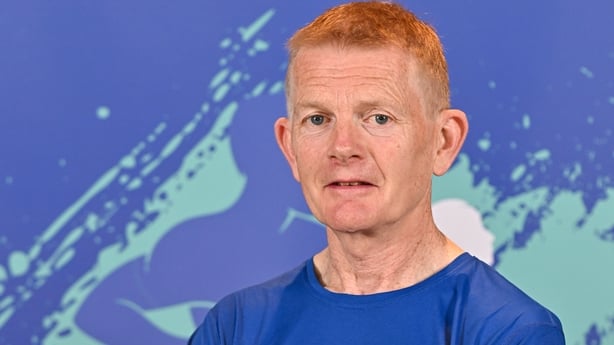With just six weeks to go until the Irish Life Dublin Marathon, time is ticking down to the 43rd staging of the event.
The iconic race, sold out months ago, has capacity of 22,500 entries with entrants of varying abilities set to plot their way around the capital on Sunday morning, 29 October.
Brendan Hackett will have a number of runners in the event, and with a distinguished coaching career that has spanned more than 40 years, offers advice to those taking part.

Footwear and gear
"If you were thinking of new shoes, now would be the time to buy so that you have them bedded in.
"The average marathon finishing time in Ireland for men is 4:07 and women 4:36. The vast majority of people are going to be on their feet for the best part of four hours, so naturally footwear is so important. Gear likewise. Practice for long runs so you are completely comfortable in what you will be wearing."
Practising fuel strategy
"Everyone is doing their long runs now as part of their training plan and that is the time to practice fuel strategy. On the morning of the marathon you are likely to have a light breakfast, maybe two hours before the start of the race. Mimic that now. Many runners choose to use gels, so start using them on the long runs.
"Ideally you would eat two hours before the run, with a gel maybe 15 minutes before the start. Take another gel relatively early into the race, say between half an hour and an hour. Try this out in the long runs so your body gets used to it."
Beginners beware
"It's not practical to train with anything close to four-hour runs, the risk of exhaustion is simply too great. My suggestion is that when a runner training for their first marathon finishes a long run (two or two and a half hours) get back to the house or car and refuel and rehydrate, and then go for a 45-minute walk. You are not straining the body as much, but you are getting that feel of being out for longer."
Types of runs
"Three types of runs are key; the long runs, the marathon pace runs and some interval runs. Interval runs can be run a little faster than marathon pace so your body will find your race speed more manageable. Intervals should be at least a mile long as short intervals at this stage will not be as beneficial. 8 x 1km, 4 x 1 mile or 5 x 1 mile at interval pace are what you could aim for.
"What you do in between can depend on your running history and work/life commitments."


